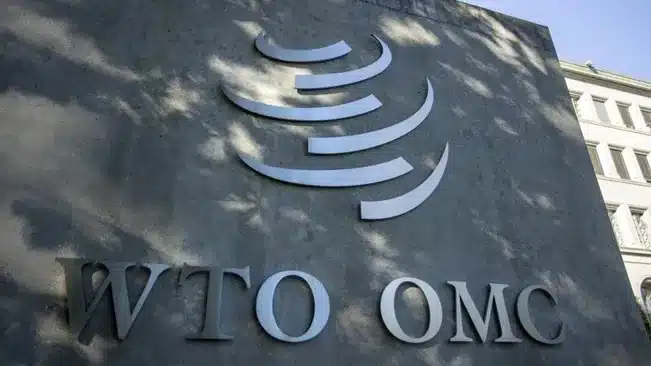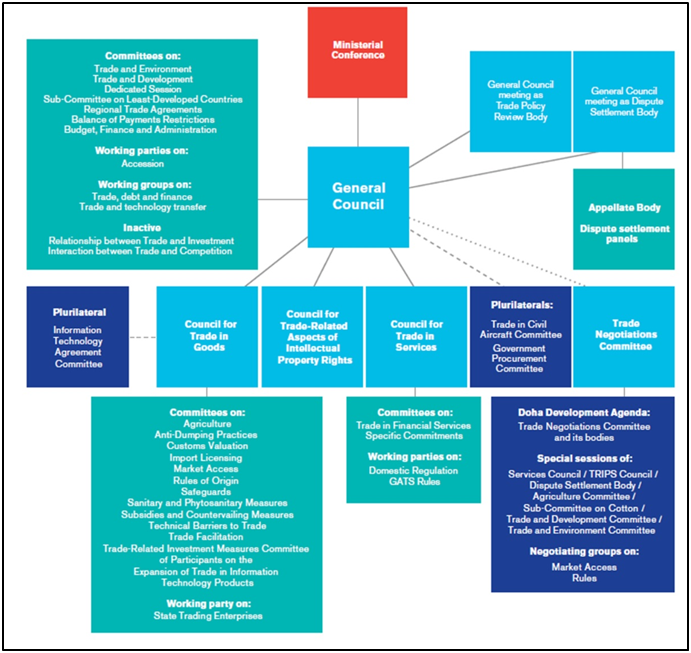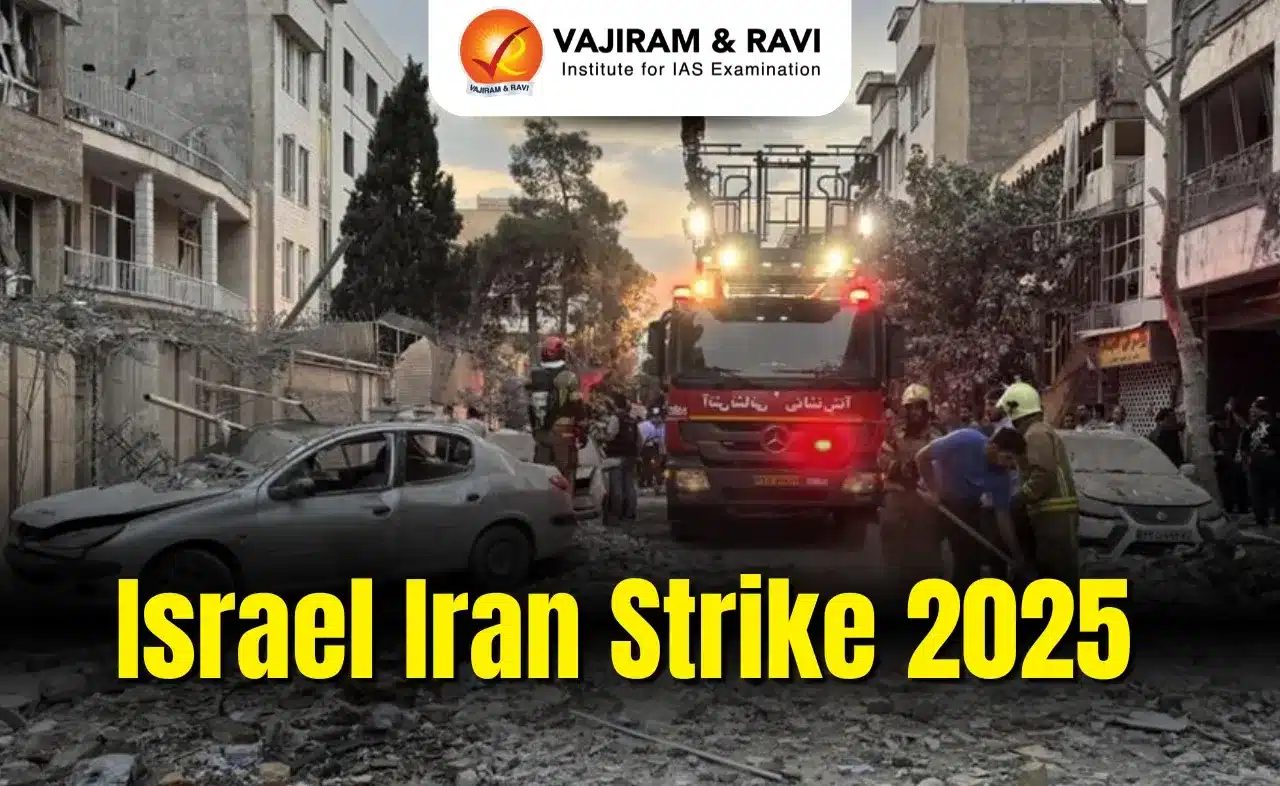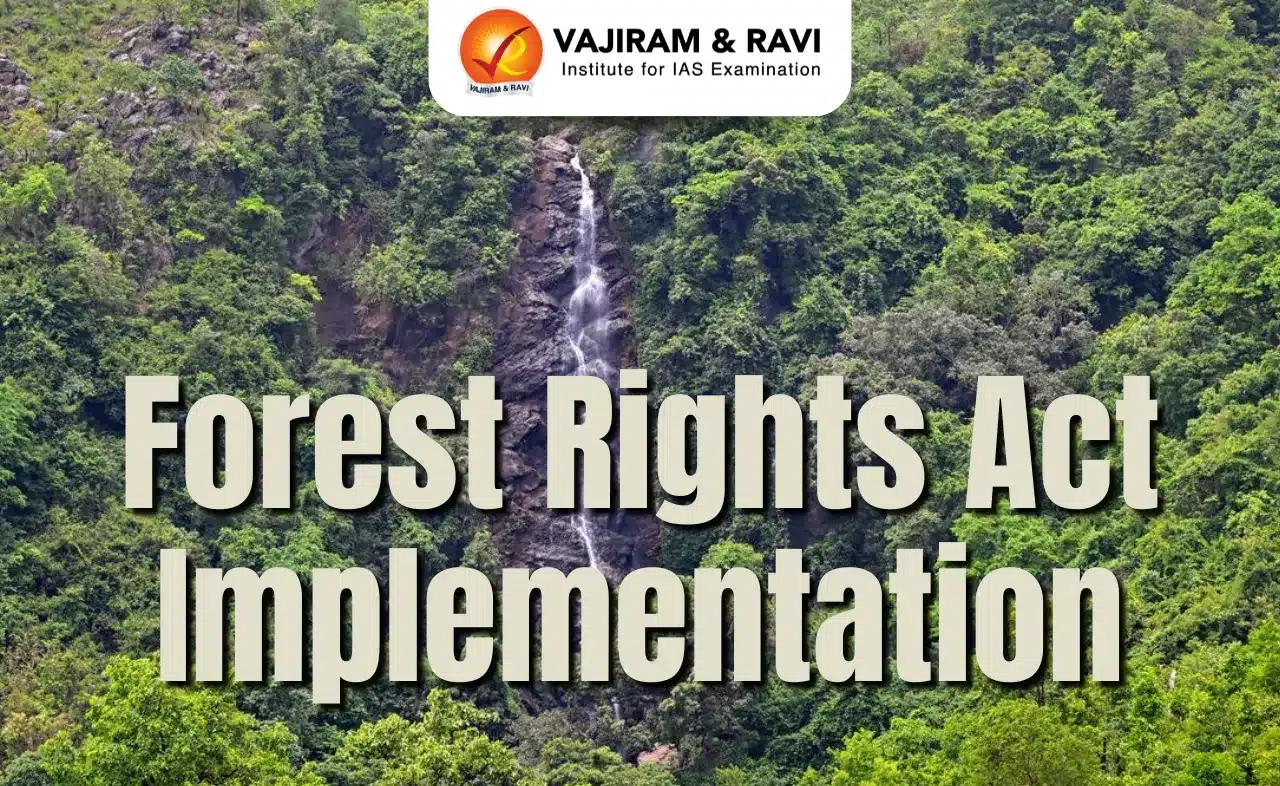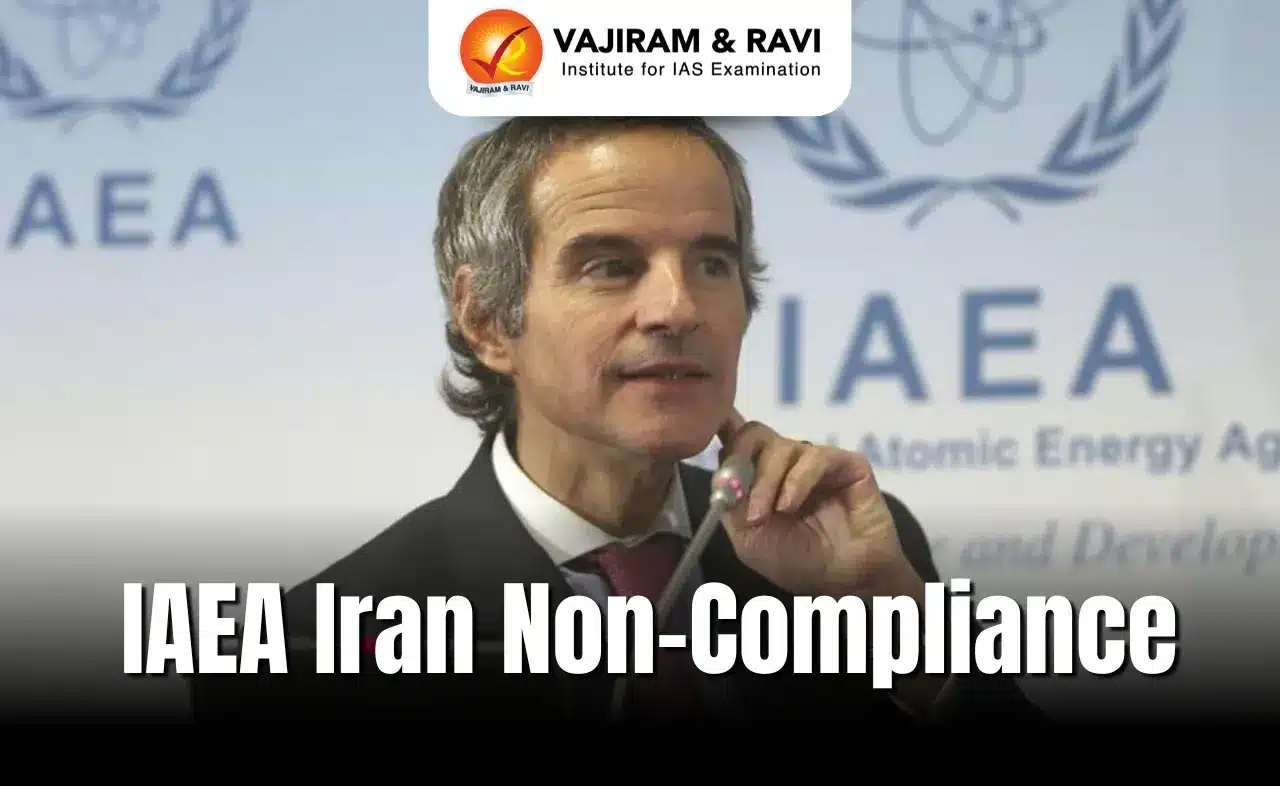What’s in today’s article?
- Why in news?
- About World Trade Organization (WTO)
- Functions of WTO
- Structure of WTO
- 13th ministerial conference (MC13) of WTO
- News Summary: WTO MC13 – Agenda for India
- India’s agenda at the meeting
Why in news?
- The four-day 13th ministerial conference (MC13) started on February 26 in Abu Dhabi, the United Arab Emirates (UAE).
- The Indian delegation is led by Commerce and Industry Minister Piyush Goyal.
About World Trade Organization (WTO)
- WTO is the only global international organization dealing with the rules of trade between nations.
- The goal is to help producers of goods and services, exporters, and importers conduct their business.
- WTO is a forum for governments to negotiate trade agreements. It is also a place for them to settle trade disputes.
- It was created by Uruguay Round negotiations (1986-94) and is headquartered in Geneva.
Functions of WTO
- Administering trade agreements
- Acting as a forum for trade negotiations
- Settling trade disputes
- Reviewing national trade policies
- Building the trade capacity of developing economies
Structure of WTO
- The WTO has 164 members, accounting for 98% of world trade.
- Accession processes for Comoros and Timor-Leste are nearing completion, paving the way for their WTO entry.
- Decisions are made by the entire membership. This is typically by consensus.
- The WTO’s top-level decision-making body is the Ministerial Conference, which meets usually every two years.
13th ministerial conference (MC13) of WTO
- MC13 of WTO will take place from February 26–29, 2024 in Abu Dhabi, United Arab Emirates.
- The conference will bring together trade ministers from around the world to:
- Review the functioning of the multilateral trading system
- Take action on the future work of the WTO
- Chart the future course of the WTO
News Summary: WTO MC13 – Agenda for India
India’s agenda at the meeting
- Food security issues
- Under the public stockholding (PSH) programme, the Government procures crops like rice and wheat from farmers at a minimum support price (MSP), and stores and distributes foodgrains to the poor.
- India stresses the need for PSH for its large, vulnerable population and wants a permanent solution from the MC13.
- Food procurement, stockholding, and distribution are crucial to India’s food security strategy.
- MSP is normally higher than the prevailing market rates and sells these at a low price to ensure food security for over 800 million beneficiaries.
- However, the WTO’s Agreement on Agriculture limits the ability of a government to purchase food at MSP.
- Under global trade norms, a WTO member country’s food subsidy bill should not breach the limit of 10 per cent of the value of production based on the reference price of 1986-88.
- As part of the solution, India has asked for measures like amendments in the formula to calculate the food subsidy cap.
- However, developed nations are of the view that such programmes distort global trade prices of food grains.
- Joint Support Initiatives (JSIs) or plurilateral agreements
- India opposes this move being pushed for certain nations.
- E.g., India is strongly opposing the efforts of a group of countries led by China to push a proposal on investment facilitation for development agreement at the WTO.
- India has maintained that this agenda falls outside the mandate of the global trade body.
- India opposes this move being pushed for certain nations.
- Agricultural reforms
- India’s stance is to protect farmer livelihoods and ensure equitable market access.
- However, developed nations are pushing to reduce domestic support and increase market openness irrespective of the fact that they provide large subsidies to their rich farmers.
- WTO reforms
- India supports fair reforms that take into account the needs of developing countries.
- This is in response to proposals from developed nations for easier negotiation processes, moving away from unanimous decision-making, and adding non-trade issues to the WTO without agreement from everyone.
- India supports efforts to improve the working of the WTO but its key pillars to be retained. These pillars are:
- special and differential treatment for less developed and developing nations,
- equal voice and
- dispute settlement mechanism.
- India also seeks a revamp of the Appellate Body to ensure fairness.
- Fisheries subsidies
- The members have already reached the first part of the agreement in 2022 under which subsidies will be prohibited for illegal, unreported and unregulated (IUU) fishing.
- Now they are negotiating to curb subsidies that contribute to overfishing and overcapacity to promote sustainable fishing.
- India champions a balanced approach on the principle of common but differentiated responsibilities.
- India, being a low fisheries subsidizer, emphasizes that advanced fishing nations have historically provided substantial subsidies and contributed to fish stock depletion.
- Hence, they should bear more responsibility based on the ‘polluter pay principle’.
- India has proposed that:
- developing countries be allowed to give subsidies to their poor fishermen to catch fish till EEZs or up to 200 nautical miles from the shore;
- rich countries engaged in fishing beyond this zone should stop providing any kind of subsidies for the next 25 years.
- Extension of customs duties moratorium on e-commerce trade
- The ongoing moratorium on customs duties on electronic transmissions, in place since 1998, is a contentious issue facing the WTO.
- India, alongside several other developing nations, has historically called for the termination of the moratorium.
- India has specific demands at MC13 to achieve this goal.
- Developed nations, however, are pushing for the permanent adoption of a duty-free flow of digital transmission.
- Barriers to trade
- India would maintain its stand that issues like labour, and environment are non-trade issues and they should not be discussed at the WTO.
- It also emphasised that trade barriers like the EU’s carbon tax and deforestation regulation should not be erected under the guise of sustainable development.
- As per India, there are different multilateral forums like in the United Nations where these issues can be discussed.
- Developed countries are also pushing to include women economic empowerment issues in the WTO talks.
Q1) Where is Uruguay Round?
The Uruguay Round was the final round of the General Agreement on Tariffs and Trade (GATT). It was the largest international trade negotiation ever, taking place from 1986 to 1994.
Q2) What is carbon tax?
A carbon tax is a tax on greenhouse gas emissions or the carbon content of fossil fuels. It’s a type of pollution tax.
Source: Household Consumption Expenditure Survey: Indians spending more on milk, fruits and vegetables than foodgrains | Indian Express
Last updated on June, 2025
→ UPSC Notification 2025 was released on 22nd January 2025.
→ UPSC Prelims Result 2025 is out now for the CSE held on 25 May 2025.
→ UPSC Prelims Question Paper 2025 and Unofficial Prelims Answer Key 2025 are available now.
→ UPSC Calendar 2026 is released on 15th May, 2025.
→ The UPSC Vacancy 2025 were released 1129, out of which 979 were for UPSC CSE and remaining 150 are for UPSC IFoS.
→ UPSC Mains 2025 will be conducted on 22nd August 2025.
→ UPSC Prelims 2026 will be conducted on 24th May, 2026 & UPSC Mains 2026 will be conducted on 21st August 2026.
→ The UPSC Selection Process is of 3 stages-Prelims, Mains and Interview.
→ UPSC Result 2024 is released with latest UPSC Marksheet 2024. Check Now!
→ UPSC Toppers List 2024 is released now. Shakti Dubey is UPSC AIR 1 2024 Topper.
→ Also check Best IAS Coaching in Delhi


